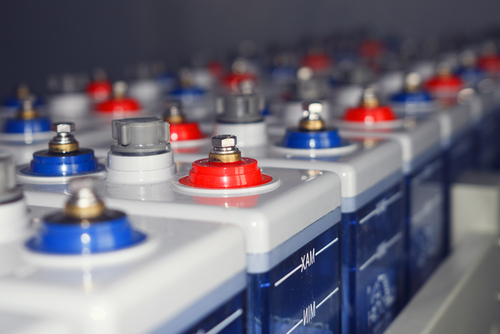Home Battery Storage Solutions
Battery Storage
Battery storage plays a vital role in enabling us to reach the goal of achieving net zero by establishing a clean, affordable, and reliable electricity system. In addition to storing energy generated by renewable sources, batteries enhance the resilience of the electricity grid.
By storing energy from renewables and utilising it when demand is highest, the electricity system operates with greater efficiency, thereby mitigating the risk of power outages.
By coupling battery storage with renewables, excess energy generated during peak production periods can be stored for use during times of low generation. This allows for a more consistent and reliable supply of clean energy, improving grid stability and reducing the need for backup fossil fuel-based power generation.
Battery storage systems also enable the integration of renewables into the existing electrical grid by providing grid services. They can help balance supply and demand, smooth out fluctuations in energy generation, and provide backup power during grid outages.

Benefits of Battery Storage for Renewable Energy
Battery storage plays a crucial role in the integration and utilisation of renewable energy sources.
It allows for the capture and storage of excess energy generated by renewable sources during periods of high production, which can then be used during times of low production or high demand.
Here are some key points about battery storage for renewable energy:
Energy Management:
Battery storage systems enable better management of intermittent renewable energy sources like solar and wind power. They store excess energy during periods of high generation and release it when there is a demand or when renewable sources are not producing.
Stabilising the Grid:
Battery storage helps stabilise the electrical grid by providing a buffer against fluctuations in renewable energy generation. It can help mitigate issues like voltage and frequency variations, smoothing out the supply of electricity.
Time Shifting:
Battery storage allows for time shifting of energy, where excess energy generated during off-peak hours can be stored and used during peak demand periods. This optimises energy usage, reduces strain on the grid, and avoids the need for additional conventional power plants.
Backup Power:
Battery storage systems can provide backup power during outages or when renewable energy sources are not available. This is particularly useful in remote areas or during natural disasters, ensuring a continuous power supply.
Peak Load Management:
Battery storage can be used to manage peak demand periods, reducing the strain on the grid. By discharging stored energy during peak load hours, it can help avoid or reduce the need for costly peak power plants.
Integration with Renewables:
Battery storage facilitates the integration of variable renewable energy sources into the grid. It helps overcome the intermittency of sources like solar and wind by providing a reliable and controllable energy supply.
Cost Reduction:
As battery technologies continue to advance and costs decline, battery storage becomes more economically viable. This leads to improved affordability and increased adoption of renewable energy systems.
Overall, battery storage systems are crucial for enhancing the reliability, flexibility, and efficiency of renewable energy sources.
They enable better utilisation of renewable energy, promote grid stability, and contribute to the transition to a cleaner and more sustainable energy future.
Battery Storage Systems at Penningtons
Discover the advantages of battery storage at Penningtons. Get in touch with us today to schedule a consultation and assess your eligibility for this cutting-edge heating technology.
Don’t delay in exploring the potential of integrating battery storage into your residential or commercial space. Contact us now, and we’ll expertly guide you through the evaluation.

Whatever your requirements, when it comes to Battery Storage Systems, it’s always best to get expert advice and expert installation.
Call 01932 259 620 or Email info@penningtonsgroup.co.uk
